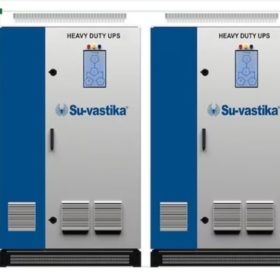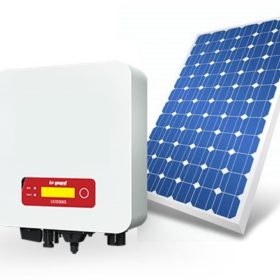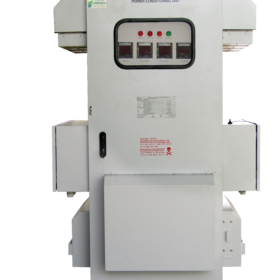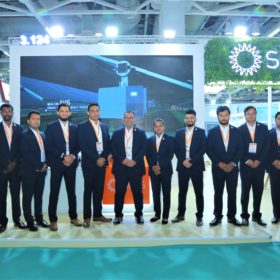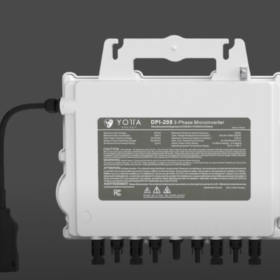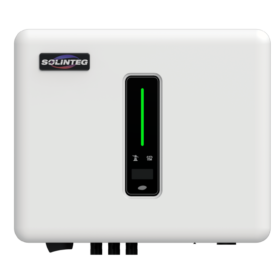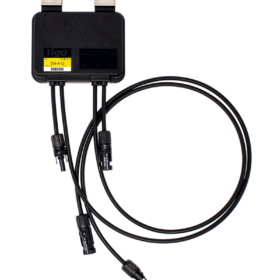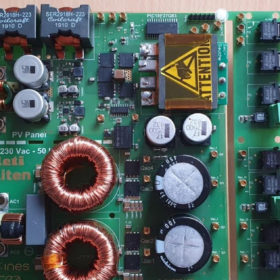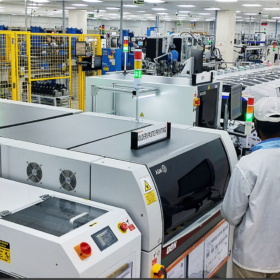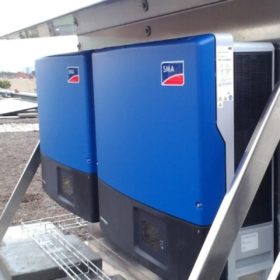Su-vastika launches up to 500 kVA lithium battery UPS
The Indian solar startup has introduced lithium battery-based three-phase uninterruptible power supplies (UPS) with power ratings from 10 kVA to 500 kVA.
Livguard unveils wall-mountable inverters for residential solar
India’s Livguard Solar has unveiled single-phase, grid-interactive inverters in rated power outputs of 3 kW and 5 kW, and efficiencies of 97.7% and 98%, respectively.
Statcon Energiaa launches plug-and-play microgrid inverter solution
India’s Statcon Energiaa has developed an outdoor inverter solution for microgrids that can integrate multiple energy sources including renewables (biomass, wind, hydro and solar), battery storage, and diesel generator and deliver continuous, voltage-stabilized power to the loads. It supports both AC and DC coupling.
Solis eyes growth in utility-scale solar segment
The Chinese inverter major has showcased its 255K-Plus three-phase inverter for utility-scale solar applications in India. The new inverter is compatible with 500+ W bifacial modules.
Yotta Energy unveils new 3-phase microinverters
US manufacturer Yotta Energy said that its two new microinverters are compatible with up to four high-power PV modules. They have a peak efficiency of 96.5% and a nominal maximum power point tracking (MPPT) efficiency of 99.5%.
Solinteg launches new residential hybrid inverter series
Solinteg’s new hybrid inverters come in seven versions with nominal power ranging from 3 kW to 9 kW, an efficiency rating of 97.6%, and a European efficiency of 97.0%. They measure 534 mm × 418 mm × 210 mm and weigh 27 kg.
Huge opportunity for module-level power electronics
A new report form analysts at IHS Markit notes that the market for module-level power electronics (MLPE) grew by 33% between 2019 and 2021, with around one-third of new residential solar installations now taking advantage of MLPE’s promise of improved safety, energy yield and fault detection. And with smaller, distributed generation systems expected to represent 43% of global PV installations between now and 2025, the opportunity for MLPE will only get larger.
Photovoltaic micro-inverter based on gallium nitride transistors
Scientists from France’s CEA-Ines developed a 400 W micro-inverter with a power density of 1.1 kW/L and an efficiency of 97%. The device utilizes GaN 600V diodes and power transistors developed by CEA’s electronic branch CEA-Leti.
Enphase surpasses 5 million shipments of microinverters produced in India
USA-headquartered Enphase manufactures microinverters in India from Finnish company Salcomp’s plant in Chennai.
Study confirms rule of thumb that PV inverters should run without faults for around 15 years
A new study by Bern University of Applied Sciences shows that the performance of most PV inverters and power optimizers remains optimal for up to 15 years. The inverters considered came mainly from the manufacturers Fronius, Sputnik, and SMA and most of the power optimizers examined came from Solaredge.
